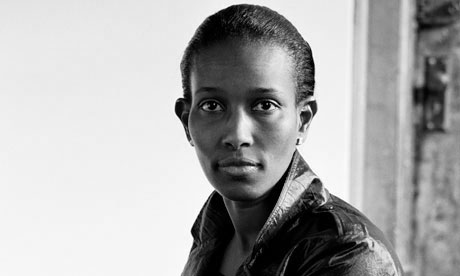
Brandeis University, based in Massachusetts, announced this week it is cancelling plans to award an honorary degree to a high-profile women's rights activist and author, seemingly on grounds of religious offense.
Ayaan Hirsi Ali - a well-known campaigner on women's rights and an outspoken critic of Islam - was due to be given the accolade by the university next month.
But yesterday the institution announced its intention to withdraw the award after coming under pressure from religious groups hostile to Ali's critical stance.
The Council of American-Islamic Relations (CAIR) hosted a petition on its website, calling on the university '...not to pay tribute to notorious Islamophobe Ayaan Hirsi Ali.'
In a statement on its website, the university said the decision was made following a discussion between its president, Frederick Lawrence, and Ali.
It went on to explain its reasoning, stating that it could not '...overlook certain of her past statements that are inconsistent with Brandeis University's core values.'
Contrary to the university's version of events, Ali claimed in her own statement online that she was not consulted on the decision. She claims she was called by the university's president Frederick Lawrence to inform her the decision had already been made, before the news was made public a few hours later.
Twitter was buzzing after the announcement. Richard Dawkins tweeted to condemn the university as 'contemptible liberal appeasers', while UK-based journalist Kenan Malik accused Brandeis of cowardice, suggesting the announcement represented their 'caving in under pressure.'
The Freedom From Religion Foundation reacted to the university's announcement by launching its own counter-campaign, urging readers to contact Brandeis and ask them to reverse its decision.
Somali-born Ali - recently described by Professor Jerry Coyne, author of 'Why Evolution Is True', as 'the bravest woman on earth' - turned her back on her strict Muslim upbringing, fleeing an attempted forced marriage and settling in the Netherlands, where she became a campaigner for women's rights and a fierce critic of the treatment of women in Islam, practices such as female genital mutilation and so-called 'honor killings'.
In 2004, she scripted and narrated the film 'Submission', an examination of the subjugation of women in Islam. She was forced into hiding after the broad-daylight murder of the film's producer, Theo Van Gogh, by an Islamist, and soon after left the Netherlands for the USA, where she now resides.
In a written response, Ali dismissed the university’s statement that implied their decision was discussed with her. She added:
“What was initially intended as an honor has now devolved into a moment of shaming. Yet the slur on my reputation is not the worst aspect of this episode. More deplorable is that an institution set up on the basis of religious freedom should today so deeply betray its own founding principles. The “spirit of free expression” referred to in the Brandeis statement has been stifled here, as my critics have achieved their objective of preventing me from addressing the graduating Class of 2014.”
Photo Credits: The Guardian
